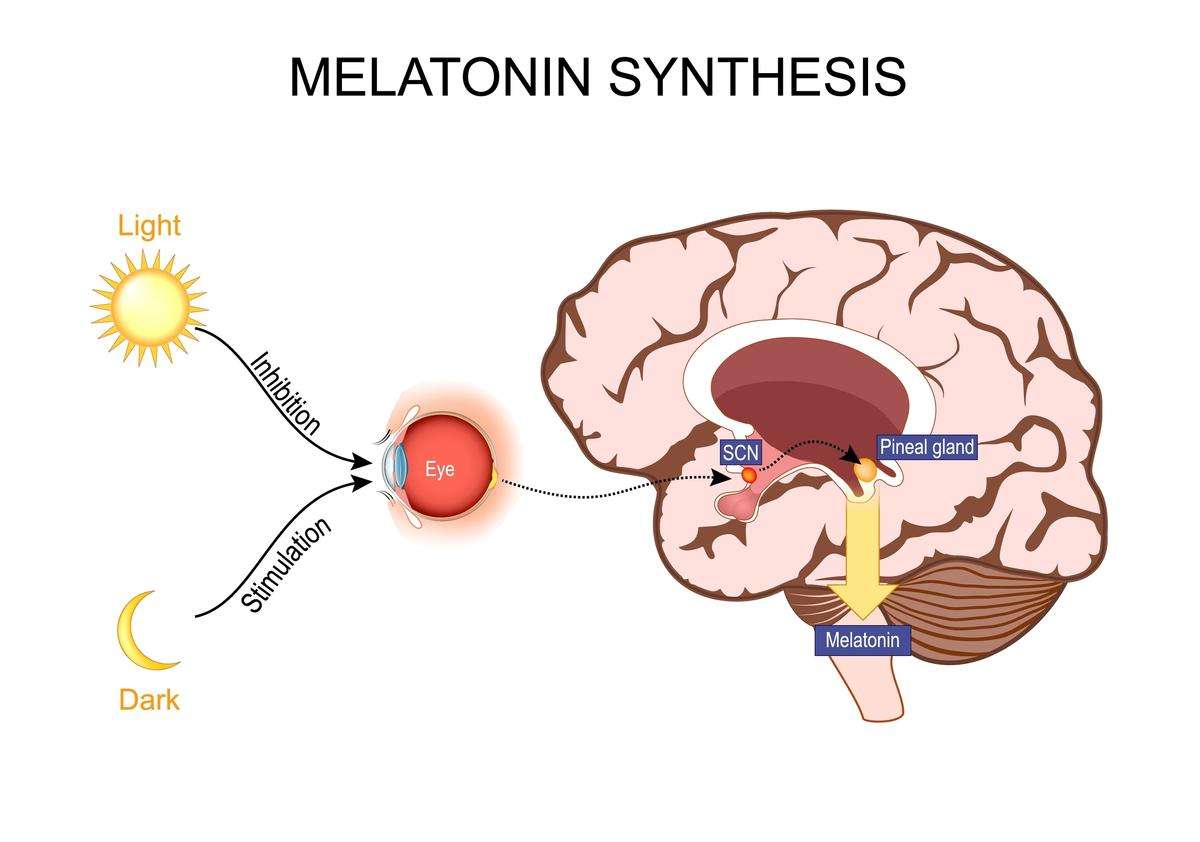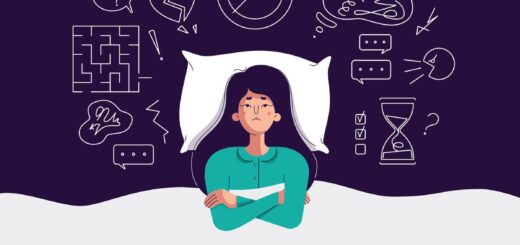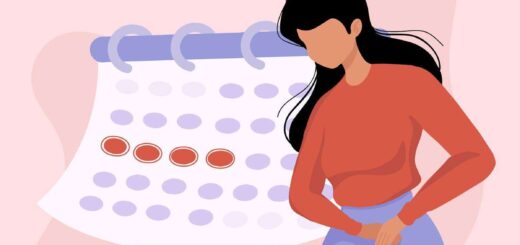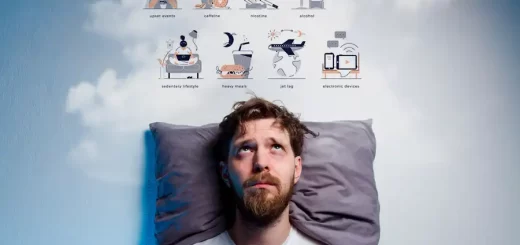How to identify 6 circadian rhythm disorder symptoms

Introduction:
In this Blog we show you circadian rhythm disorder symptoms, Sleep is a complicated biological process. When you sleep, you are not awake, but your brain and other parts of your body are still working. They do a number of various jobs that helps you to stay healthy and helps to give your best. So, not getting enough sleep throws off your usual circadian rhythm and makes you feel tired. It also shows a way to get so many sleep problems, which can affect your physical and mental health, how you think, and how you get through your day.
Sleep disorders are a group of health problems that make it hard to sleep well every night. Whether a health problem or too much worry is to blame, sleep problems are becoming more common, especially in the United States. Most people sometimes have trouble sleeping because of stress, a busy routine, or something else in their environment. But if these problems happen often and get in the way of daily life, they may be signs of a sleeping issue.
Common sleep disorders include narcolepsy, shift work sleep disorder, sleep apnea, and circadian rhythm disorder. In this article, we will discuss circadian rhythm disorder symptoms, what causes them, and what the best treatments are. This will help us determine whether someone is having trouble sleeping.
What are circadian rhythm sleep disorders?
Circadian rhythms sleep disorders are a group of sleep problems that all have one thing in common: they make it hard to sleep at the right time. Your body has an internal clock that makes you sleep more at night and stay awake and alert during the day. The regular pattern of going to sleep and getting up every 24 hours is called circadian rhythm.
Your body tries to make your sleep-wake cycle match things in your environment, like when it’s dark and light outside when you eat, and when you’re busy. When your sleep-wake cycle is out of sync with your surroundings, you may have difficulty sleeping and not get enough sleep. You have circadian rhythm disorder if your normal sleep-wake cycle is broken or changed in ways that make it hard to do daily tasks.
These short-term variations in your sleep patterns can be caused by your sleeping habits, job, or travel. Circadian sleep disorder can be caused by several things, such as getting older, having certain genes, or having a physical problem. You may also have signs like being too sleepy during the day, not being very alert, and having trouble making decisions.
Your doctor may ask you about how you sleep and suggest a sleep study or other tests to figure out if you have a problem with your circadian rhythm. Your treatment plan will depend on what kind of circadian rhythm problem you have and what caused it.
Making healthy lifestyle modifications to improve your sleep habits can help you prevent circadian rhythm issues. If you don’t fix a problem with your circadian rhythm, it could make you more likely to get sick or cause accidents at work or on the road.
What are the six circadian rhythm disorder symptoms?
Circadian rhythm disorders are conditions that occur due to disruption in the normal sleep-wake cycle. Circadian rhythm symptoms can vary depending on the type of circadian disorder you have and how serious is your medical condition. Many symptoms of circadian rhythm sleep disorders occur because you are not getting enough time of sleep that your body needs it. Circadian rhythm disorders that aren’t found and handled can make you more likely to get sick or cause accidents at work or on the road. Talk to your doctor and order modavinil tablet online.
Difficulty falling asleep at a desired bedtime:
People with CRSDs may have trouble falling asleep at the usual or socially acceptable bedtime. They might feel wide awake and alert when they should be getting ready for bed in the evening.
Difficulty waking up at the desired time:
People with CRSDs may have trouble getting up in the morning at the time they want to. They might be tired all the time and have trouble getting out of bed.
Excessive daytime sleepiness:
People with circadian rhythm sleep disorder often experience excessive sleepiness during the day. This can make it difficult for them to stay alert and focused, leading to decreased productivity, difficulty concentrating, and higher risks of accidents and errors.
Insomnia:
Some CRSDs can make it hard to sleep, such as by making it hard to fall asleep or stay asleep. People may lie awake in bed for long amounts of time, even when they are tired, which can lead to a chronic lack of sleep.
Inability to adjust to schedule changes:
People with CRSDs may find it hard to adjust to changes in how often they sleep and wake up. Even if they try to change their sleep schedule to meet social or work responsibilities, their internal body clock may not let them. This can cause problems that last for a long time.
Impaired daytime functioning:
CRSDs can make it hard to do things in daily life. People may have trouble in their personal, social, and professional lives if they are sleepy, tired, or can’t get their sleep-wake cycle to match what society expects.
It’s important to remember that for a circadian rhythm sleep disorder to be diagnosed; these symptoms must last for a long time and cause worry or problems in daily life. If you think you might have a CRSD, it’s best to talk to a doctor to get an accurate diagnosis and find the best way to treat it.
What are the best treatment options for circadian rhythm disorder?
Different kinds of circadian rhythm disorders can be treated in different ways, and how much they affect your quality of life depends on the illness itself. Your doctor will make a personalized treatment plan that gives you the best chance of success. Most types of therapy use more than one way.
Lifestyle and behavior therapy:
This method helps people sleep better and get into good sleep habits. Good sleep habits include keeping regular bedtimes and wake-up times, even on weekends and holidays, not taking naps, exercising regularly, and not drinking alcohol or drinking caffeine within a few hours of bedtime.
Light therapy:
Light therapy is when a person is exposed to bright light, commonly in the morning or evening, to help control their sleep-wake cycle. People with delayed sleep phase disorder (DSPD) can get to sleep faster with the help of light therapy in the morning. Advanced sleep phase disorder (ASPD), on the other hand, can be helped by light treatment in the evening.
Melatonin supplements:
Melatonin is a hormone that regulates when you sleep and when you wake up. Melatonin tablets may help some people with CRSDs sleep better at night. It can make you feel sleepy at the time you want to go to bed or help you sleep faster.
Sleep hygiene practice:
Adopting good sleep hygiene can improve the general quality of sleep and help to control the sleep-wake cycle. This means keeping a regular sleep routine, making a sleep-friendly environment, avoiding stimulants right before bed, and learning how to relax.
Medications:
Melatonin, tasimelteon, and modafinil are just some of the medicines that can be used to treat circadian rhythm disorder. Modafinil is a drug that can only be bought with a prescription and is known as a wakefulness-promoting agent. So, if you mostly work rotating shifts and have this circadian rhythm problem, your doctor may prescribe this medicine. You can feel more awake if you take these pills an hour before your shift starts. So, if you want to buy modafinil online, the best place to do it is at bumodafinilrx.org. As they sell all medicines at low prices without lowering the quality, you can be sure that the goods you buy are safe and effective.
Conclusion:
Circadian rhythm sleep problems are caused by sleep patterns that are constantly or sometimes changed. Circadian rhythm sleep problems come in many forms. Each is different in its ways. The kind of treatment you get depends on your sleep problem and how much it affects your life.
FAQ:
[WPSM_AC id=6556]












